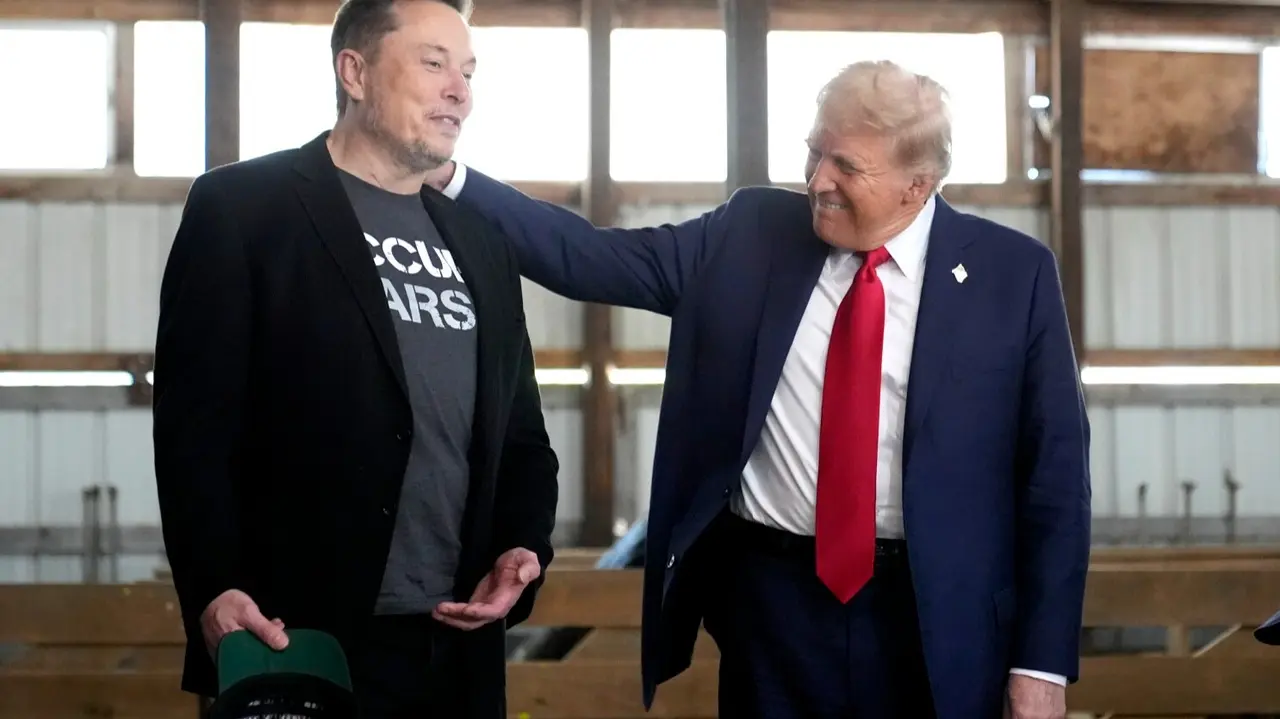Updated 29 May 2025 at 09:30 IST
Donald Trump’s ‘Patriot Friend’ Elon Musk Parts Ways: What Really Triggered Tesla CEO’s Exit From DOGE?
Elon Musk has exited his advisory role under US President Donald Trump, citing the end of his scheduled term.
- Republic Business
- 3 min read

On Thursday, Elon Musk announced he is stepping down from his role as a top advisor to US President Donald Trump, concluding his efforts to overhaul the federal bureaucracy. His exit comes amid rising tensions inside the White House and growing resistance to his aggressive reform strategies.
Taking to X, Musk wrote,“As my scheduled time as a Special Government Employee comes to an end, I would like to thank President @realDonaldTrump for the opportunity to reduce wasteful spending. The @DOGE mission will only strengthen over time as it becomes a way of life throughout the government.”
The departure was swift and reportedly unplanned. According to a source with knowledge of the matter, Musk did not have a formal conversation with Trump before announcing his exit. The decision was “made at a senior staff level,” as reported by Reuters.
Tensions Over Tax and Spending
While Musk’s public statement focused on gratitude, his exit followed his criticism of Trump’s signature tax bill, which he slammed as “too expensive” and counterproductive to his cost-cutting mission through the U.S. DOGE (Department of Government Efficiency) Service.
According to Reuters, Some senior White House officials, including Deputy Chief of Staff Stephen Miller, were particularly irked by those comments, and the White House was forced to call Republican senators to reiterate Trump’s support for the package.
From Chainsaws to Clashes
Musk’s tenure was marked by dramatic flair and frequent controversy. At the Conservative Political Action Conference in February, Musk held up a red metallic chainsaw, declaring,
“This is the chainsaw for bureaucracy,”
His vow to slash $2 trillion in federal spending and his disdain for the federal workforce earned him both praise and criticism. He predicted that ending “the COVID-era privilege” of telework would prompt “a wave of voluntary terminations that we welcome.”
But over time, Musk’s outsider approach wore thin. Cabinet members who initially backed his reforms began pushing back. Trump himself reminded officials in March that staffing decisions ultimately rested with department secretaries, not with Musk, as mentioned in the report by Reuters.
Read More - Court Hammers US President’s Drastic Trade Tariff Plan
Internal Frictions and Final Signals
Reuters also revealed that Musk clashed with top Trump cabinet members including Secretary of State Marco Rubio, Transportation Secretary Sean Duffy, and Treasury Secretary Scott Bessent. He reportedly called Trump’s trade adviser Peter Navarro a “moron” and “dumber than a sack of bricks.” Navarro brushed it off, saying, “I’ve been called worse.”
Frustrated by bureaucratic constraints and unable to enact deeper cuts, Musk began signaling his exit. In a Tesla earnings call on April 22, he stated he would be “significantly scaling back” his government work to refocus on his businesses.
Advertisement
End of an Era — Or a Pause?
Musk’s departure may mark the end of one of the most unorthodox stints in modern government advisory. Though still aligned with Trump ideologically, sources close to the matter say his influence had waned due to mounting friction and internal pushback.
Whether this exit is final or a strategic retreat remains to be seen. For now, the billionaire turns his attention back to Tesla, SpaceX, and the DOGE mission
Published By : Gunjan Rajput
Published On: 29 May 2025 at 09:28 IST
